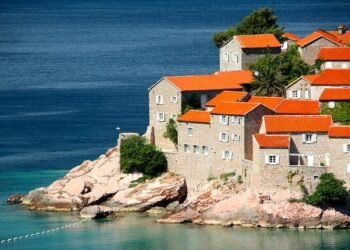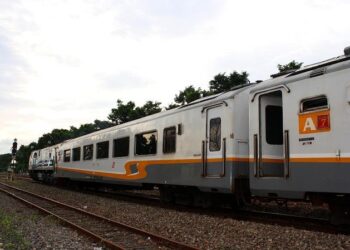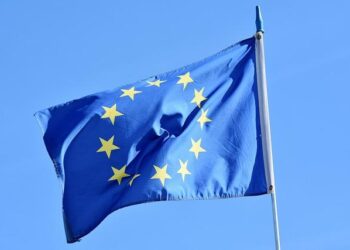Tensions have flared in the Balkans as recent protests in Montenegro shed light on the delicate and complex relationship between Serbia and Turkey. The demonstrations, sparked by political and ethnic grievances, have not only intensified domestic unrest but also exposed underlying frictions in regional diplomacy. An international report by RFI highlights how these events underscore the fragile balance between Belgrade and Ankara, revealing challenges that could reshape alliances and stability in Southeast Europe.
Montenegro Protests Spotlight Rising Tensions in Serbia Turkey Relations
Recent unrest in Montenegro has drawn international attention to the delicate and often volatile relationship between Serbia and Turkey. Demonstrations sparked by political and religious tensions have exposed broader regional complexities, underscoring how domestic conflicts can reverberate through bilateral ties. While Serbia maintains a cautious diplomatic stance, Ankara’s growing influence in the Balkans through cultural and economic investments has become a point of contention, heightening sensitivities on both sides.
Analysts highlight several key factors aggravating this evolving dynamic:
- Historical narratives: Competing interpretations of regional history fuel nationalist fervor.
- Religious allegiances: The Serbian Orthodox Church’s role contrasts with Turkey’s outreach to Muslim communities.
- Geopolitical ambitions: Both nations seek strategic footholds in Montenegro’s political landscape.
| Aspect | Serbia | Turkey |
|---|---|---|
| Diplomatic Approach | Measured, cautious engagement | Proactive cultural diplomacy |
| Regional Influence | Strong in Orthodox communities | Expanding in Muslim majority areas |
| Long-term Focus | Preserving traditional alliances | Building economic partnerships |
Analyzing the Impact of Regional Unrest on Diplomatic and Economic Ties
Recent unrest in Montenegro has cast a spotlight on the delicate diplomatic equilibrium between Serbia and Turkey. Both nations, each with distinct political and economic ambitions in the Balkans, find their bilateral relations tested by the ripple effects of regional protests. As tensions escalate, diplomatic channels are strained, revealing underlying suspicions and competing interests that complicate efforts to maintain regional stability. Observers note that the protests have not only intensified public sentiment but also challenged the strategic partnerships forged over the past decade.
Economic ties face mounting pressure amid the uncertainty:
- Trade volumes have seen fluctuations, particularly in energy and infrastructure sectors.
- Joint investments are increasingly scrutinized for political alignment risks.
- Cross-border tourism suffers from travel advisories linked to the unrest.
- Financial institutions from both countries adopt cautious stances on new ventures.
| Impact Area | Pre-Unrest Status | Current Trend |
|---|---|---|
| Diplomatic Engagement | Frequent bilateral talks | Reduced high-level meetings |
| Trade Volume | Steady growth (~8% YoY) | Plateau with risk of decline |
| Investment Projects | Several underway | Delayed approvals |
| Public Perception | Generally positive | Increasing skepticism |
Strategic Steps for Stabilizing Cooperation and Preventing Further Escalation
To achieve lasting stability in Serbia-Turkey relations amid current turmoil, diplomatic engagement must prioritize transparency and trust-building. Both governments should initiate regular bilateral dialogues focused on addressing mutual concerns and reframing contentious issues within a framework of respect and cooperation. Ensuring open communication channels will reduce misunderstandings that could otherwise spiral into larger conflicts. Additionally, involving third-party mediators with regional expertise could facilitate neutral ground for negotiations, promoting accountability on both sides.
Concrete measures should accompany dialogue efforts to prevent further escalation. These include:
- Establishing joint monitoring committees to oversee protest-related developments and prevent misinformation.
- Deploying confidence-building military and cultural exchanges aimed at easing tensions and fostering people-to-people connections.
- Coordinating economic initiatives that can create interdependence, thereby incentivizing peaceful resolutions.
| Strategic Step | Intended Outcome | Timeframe |
|---|---|---|
| Regular Diplomatic Forums | Increased Transparency | Ongoing |
| Joint Monitoring Committees | Reduced Misinformation | Short-term (3-6 months) |
| Military & Cultural Exchanges | Improved Mutual Understanding | Medium-term (6-12 months) |
| Economic Cooperation Projects | Enhanced Interdependence | Long-term (1-3 years) |
The Conclusion
The recent protests in Montenegro have once again underscored the delicate and often volatile nature of Serbia-Turkey relations. As both regional powers navigate a complex web of historical ties, political interests, and strategic partnerships, the events highlight how quickly underlying tensions can surface on the international stage. Moving forward, careful diplomacy will be essential to maintain stability in the Balkans and prevent further escalation between these influential neighbors. RFI will continue to monitor developments in this unfolding geopolitical landscape.
















